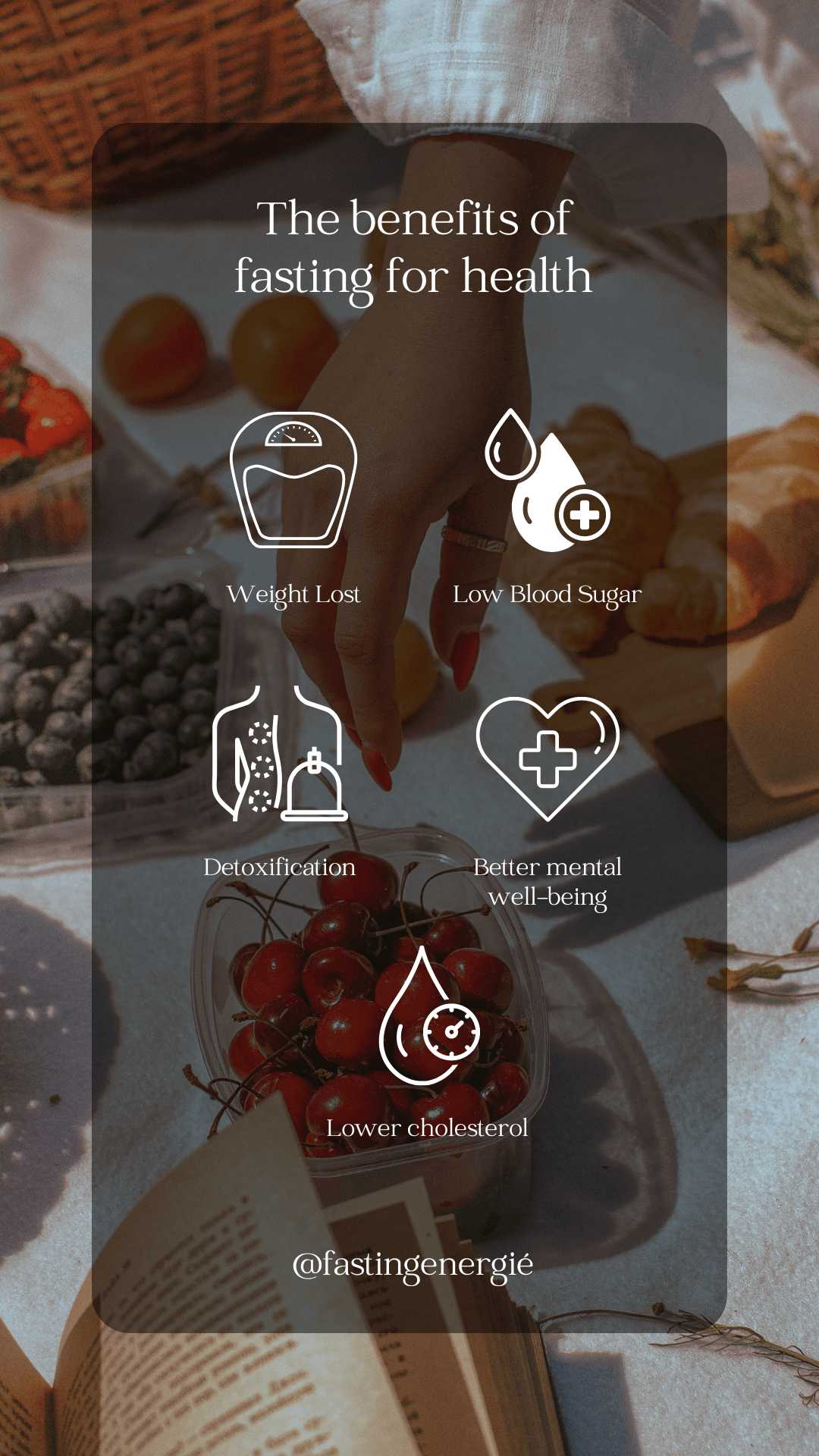Is Intermittent Fasting the Secret Cure for Cancer?
Table of Contents

Introduction
Exploring the Connection Between Diet and Cancer
For decades, there has been significant research and debate about the link between dietary choices and cancer. Recent studies have begun to offer insight on how intermittent fasting may affect cancer risk and treatment success. Intermittent fasting, which involves alternating periods of eating and fasting, has an impact on a variety of metabolic and physiological processes that may help prevent and treat cancer. This introduction investigates how fasting modifies the body’s internal milieu in ways that may prevent cancer formation or improve outcomes for people who have been diagnosed with the disease.
Scientific Overview of Cancer
Understanding the Basics of Cancer Development
Cancer develops when cells in the body multiply excessively and spread to other regions. This process begins when genetic abnormalities within a single cell activate systems that cause the cells to proliferate beyond their usual boundaries. Over time, these cells can form tumours, impair the immune system, and cause considerable harm to the body. Understanding the molecular processes involved in cancer’s start and progression is critical for creating viable treatment options.
The Common Types and Causes of Cancer
Cancer refers to a broad range of diseases that can affect any region of the body. Breast, lung, prostate, and colorectal cancer are among the most common forms. These categories differ not only geographically, but also in terms of biological behaviours and treatment responses. Cancer is caused mostly by genetics, lifestyle variables such as tobacco use, food, and physical exercise, environmental carcinogen exposures, and infections from specific viruses, bacteria, or parasites.
Research on Intermittent Fasting and Cancer
An overview of key studies and their findings
Recent research has investigated the impact of intermittent fasting on cancer, with promising results in both prevention and as a supplement to established cancer treatments. For example, studies have shown that fasting can lessen the negative effects of chemotherapy while increasing its effectiveness at targeting cancer cells. Some studies have also suggested that fasting may cause metabolic stress in cancer cells, making them more sensitive to chemotherapy and less prone to acquire resistance.
How Fasting Affects Cancer Cells
Fasting affects cancer cells via multiple mechanisms:
- Autophagy: Fasting increases autophagy, which is a cellular cleansing process that breaks down and recycles damaged cell components. Autophagy can have two purposes in cancer. It can prevent cancer by eliminating damaged cells that could turn malignant, but it can also support cancer cells under specific situations.
- Reduction of Insulin Growth Factor (IGF-1): High IGF-1 levels are linked to an increased risk of some malignancies. Fasting drastically lowers IGF-1 levels, which can inhibit cancer cell proliferation while increasing tumour cell death.
- Improved Immune System Response: Fasting can rejuvenate immune cells, potentially increasing the immune system’s ability to combat malignant cells.
Mechanisms Behind Fasting and Cancer Prevention
Autophagy and Its Role in Removing Damaged Cells
Autophagy is a cellular process that destroys and recycles cellular components, helping to remove damaged or malfunctioning proteins and organelles. This process is essential for cellular health and can help avoid the accumulation of potentially malignant cells. Autophagy rates increase dramatically during fasting, as cells rely on internal energy and components to maintain crucial processes. Intermittent fasting promotes autophagy, which helps maintain cellular integrity and minimises the risk of malignant changes.
Effects of Fasting on Hormones and Growth Factors
Intermittent fasting affects various hormonal pathways that are linked to cancer risk. For example, fasting reduces insulin and Insulin-like Growth Factor 1 (IGF-1), both of which are important in cell proliferation and growth. Lower levels of these hormones can slow cancer cell growth and lessen the likelihood of tumour formation. Fasting can also boost adiponectin levels, which have been linked to a lower risk of some malignancies.
Reduction in Inflammation and Immune System Modulation
Chronic inflammation is a well-known risk factor for cancer, contributing to both its initiation and progression. Fasting reduces inflammation throughout the body, potentially lowering cancer risk. Furthermore, fasting has been demonstrated to reset and renew the immune system, allowing it to recognise and destroy cancer cells. This is especially important in the context of immunotherapy, when the immune system’s ability to combat cancer is critical.
Intermittent Fasting as a Complementary Therapy
How Intermittent Fasting Can Support Traditional Cancer Treatments
Intermittent fasting can improve the efficacy of traditional cancer therapies such as chemotherapy and radiotherapy. Fasting may improve the therapeutic index of these treatments by making cancer cells more sensitive to stress and less capable of recovering. Fasting can also shield healthy cells from the negative effects of cancer treatments, a process known as differential stress resistance. This protection allows patients to better endure treatments and maintain their general health while in therapy.
Case Studies Related to Cancer Treatment and Intermittent Fasting
Case Study 1: Improving Chemotherapy Efficacy
Background: A study published in the journal “Ageing” looked into the effects of short-term fasting on chemotherapy. Patients with various forms of cancer completed fasting cycles before and after chemotherapy treatments.
Findings: The fasting group experienced less chemotherapy adverse effects, such as fatigue, weakness, and gastrointestinal pain. Furthermore, preliminary findings indicated that fasting may boost the lethal effects of chemotherapy on cancer cells, possibly due to enhanced stress sensitivity in the fasting condition.
Case Study 2: Fasting and Breast Cancer
Background: A case study of a patient with HER2-negative breast cancer investigated the effect of instituting a fasting-mimicking diet (FMD) during chemotherapy cycles.
Findings: The patient followed an FMD for three days prior to and on the day of treatment. This technique was discovered to be not only well tolerated, but also related with a considerable decrease in tumour markers. Post-treatment imaging revealed a dramatic response to the treatment, implying that fasting may work in conjunction with chemotherapy.
Case Study 3: Fasting and Quality of Life During Cancer Treatment
Background: A clinical experiment investigated the effect of intermittent fasting on quality of life for chemotherapy patients.
Findings: Patients who fasted reported higher energy levels, better moods, and an overall higher quality of life than those who did not fast. These advantages were linked to lower oxidative stress and inflammation during fasting times.
Case Study 4: Intermittent Fasting and Endocrine-related Cancer.
Background: The study focused on males with prostate cancer who practiced intermittent fasting in addition to their regular treatment plan.
Findings: Those who fasted for 16-24 hours on a regular basis demonstrated slower prostate cancer growth and higher PSA (prostate-specific antigen) levels than the national average. The fasting diet helps to regulate hormone levels, which is especially important in hormone-sensitive malignancies such as prostate cancer.
Case Study 5: The Fasting Mimicking Diet and Long-term Cancer Survival
Background: Observational studies of cancer survivors who followed fasting-like diets as part of their long-term post-treatment care.
Findings: Survivors of the FMD reported fewer cancer recurrences and were shown to have better glucose and insulin management, both of which are frequently associated with cancer recurrence and death.
Potential Risks and Challenges.
When Intermittent Fasting May be Risky for Cancer Patients
Despite the potential benefits, intermittent fasting is not appropriate for many cancer patients. It may be dangerous for individuals who are underweight, have cachexia (a syndrome characterised by substantial muscle and weight loss), or are receiving some intense treatments that require calorie maintenance or growth. Fasting can exacerbate dietary inadequacies and weaken individuals who are already fragile.
How to Address Common Concerns and Misconceptions
There are various misconceptions concerning intermittent fasting and cancer, including the idea that fasting may entirely heal cancer without the need of other treatments. Fasting has supporting and potentially enhancing benefits for cancer therapy, but it should not be used in place of conventional treatments. Patients and carers should speak with oncologists and nutrition specialists before fasting to ensure it is done safely and successfully.
Expert Opinions and Ethical considerations
Observations from Oncologists and Nutritionists
Many oncologists and dietitians see intermittent fasting as a promising avenue for cancer research and treatment. They frequently highlight the possible benefits of fasting in improving chemotherapy efficacy and decreasing side effects. However, specialists warn that fasting is not appropriate for all cancer patients, particularly those who are already malnourished or suffer from cachexia. Nutritionists emphasise the necessity of eating a well-balanced diet rich in key nutrients to promote overall health and recovery throughout cancer treatment.
The ethical implications of promoting fasting as a cancer cure
Promoting intermittent fasting as a single cancer therapy has serious ethical problems. Experts warn against exaggerating the benefits without sufficient scientific evidence. There is fear that such advocacy may induce patients to abandon known and effective treatments in favour of fasting, thus jeopardising their health. Ethical practice requires that all recommendations be supported by strong evidence and that alternative treatments, such as fasting, be presented as complementary rather than curative.
Future Directions in Research
What’s Next for Research on Intermittent Fasting and Cancer?
More comprehensive clinical trials are being conducted to better understand how intermittent fasting can be safely included into cancer therapy protocols. Future research will most likely focus on determining which cancer kinds and treatment phases benefit the most from fasting, as well as how fasting can be customised to individual patient demands while maintaining nutritional status.
Emerging Trends and ongoing Trials
There is growing interest in studying how intermittent fasting affects the immune system’s response to cancer and whether it can increase the efficacy of developing immunotherapies. Other trials are looking into the molecular processes by which fasting affects cancer cell metabolism and resistance to treatment. These research are critical for generating appropriate fasting regimens in therapeutic settings.
Conclusion
Intermittent fasting has great promise for improving cancer treatment outcomes and possibly lowering cancer risk. While the research is still ongoing, the evidence shows that, with appropriate execution, fasting could become an important component of cancer treatment. However, it is critical to approach this with a thorough grasp of the potential hazards and ethical implications, so that patients receive accurate information and therapeutically appropriate recommendations. As we await further conclusive evidence, intermittent fasting is an intriguing field of investigation in the continuous drive to better cancer therapy and patient quality of life.
Frequently Asked Questions
Does fasting stop cancer cells from growing?
Fasting may impact cancer cell growth by creating a less favorable environment for these cells. The reduction in blood glucose and insulin levels during fasting can starve cancer cells of the nutrients they need to grow, but fasting alone is not a standalone treatment for cancer.
How does intermittent fasting affect cancer cells?
Some studies suggest that intermittent fasting can stress cancer cells more than normal cells, possibly making them more susceptible to chemotherapy and less able to recover. The mechanism involves changes in glucose metabolism and reduced insulin levels, which might limit the energy supply to cancer cells.
Can intermittent fasting help treat cancer?
Intermittent fasting may potentially support cancer treatment by reducing inflammation, improving metabolic health, and enhancing the effectiveness of chemotherapy. However, it’s important to note that fasting alone is not a cure for cancer and should be considered as a complementary approach under medical supervision.
Does fasting kill cancer cells in the body naturally?
Fasting does not directly kill cancer cells but may support the body’s natural defense mechanisms by enhancing autophagy, a process that can degrade and recycle damaged and potentially malignant cells. It may also make cancer cells more vulnerable to chemotherapy.
Is intermittent fasting safe for cancer patients?
The safety of intermittent fasting for cancer patients can vary depending on individual health status, the type of cancer, and treatment phase. It is crucial for patients to consult with their healthcare providers before starting any fasting regimen.
What are the risks of intermittent fasting for cancer patients?
Risks may include malnutrition, decreased immune function, and worsened treatment side effects, particularly if not properly monitored and adjusted based on the patient’s ongoing nutritional needs and treatment responses.
What types of cancer might benefit most from intermittent fasting?
Research is still determining which types of cancer might respond best to intermittent fasting. Some preliminary studies suggest benefits for breast and prostate cancer, but more research is needed across a broader range of types.
How does intermittent fasting interact with chemotherapy?
Preliminary studies suggest that intermittent fasting may help reduce side effects and improve the efficacy of chemotherapy by making cancer cells more vulnerable to treatment. However, clinical guidelines must be followed, and any fasting regime should be coordinated with treatment schedules.

